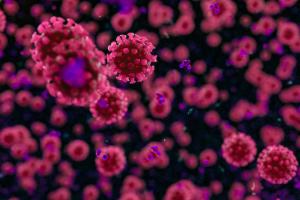As the COVID-19 virus continues to change, so does the information—and the questions. We sat down with CentraState Healthcare System Infection Disease Specialist Ramanasri Kudipudi, MD, to get answers about the new Delta variant, and the latest CDC recommendations.
What is the delta variant?
When COVID-19 spreads enough, it mutates. Some of these mutations are more dangerous than others. Delta is one of those mutations.
Why is the Delta variant more dangerous?
The Delta variant is more contagious, meaning it is more easily passed on to others and spreads faster. In fact, it’s 200 percent more transmissible than the original COVID-19. Unvaccinated people are especially vulnerable.
Can vaccination help protect against the Delta variant?
Absolutely. Getting vaccinated significantly reduces your chance of severe illness, hospitalization, and death.
Do all the COVID vaccines work against the Delta variant?
The COVID-19 vaccines approved or authorized in the U.S. are effective at preventing severe disease and death, including against the Delta variant. But, it’s important to keep in mind, they’re not 100 percent effective. Some fully vaccinated people may become infected (called a breakthrough infection) and become ill. For all people, the vaccine provides the best protection against serious illness and death.
Can vaccinated people spread the Delta variant?
Yes, they can. Even if a vaccinated person doesn’t have symptoms or get sick, they can still spread Delta. That’s why it’s important to mask up when you are indoors and around others.
What are the current CDC recommendations for masking?
At this time, while we increase the number of vaccinations in the U.S., it’s important to use all available prevention strategies. The CDC recommends masking indoors in public places to stop transmission and stop the pandemic. Everyone who can, including fully vaccinated people, should wear masks in public indoor places in areas of substantial or high transmission.
Can variants like Delta be eliminated?
The best way to stop variants is to stop the spread of the disease. And the best way to stop the spread is vaccination. Low vaccination coverage is what increases the chances that even more concerning variants could emerge. Over the years, several diseases have been eliminated that thanks to vaccines. These include polio, small pox, measles, rubella, tetanus, diphtheria. If we all work together, get vaccinated and use smart prevention strategies, one can hope that we can add COVID-19 to this list.





